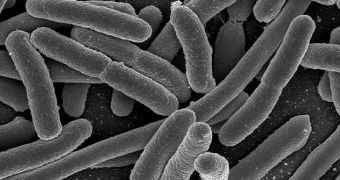According to a new study, common Escherichia coli infections that cause gastroenteritis can have negative, long-term health effects, that lead to people developing kidney problems, chronic high blood pressure and even heart diseases.
People can develop gastroenteritis after drinking water that is contaminated with the microorganism. While the condition itself can easily be treated by modern medicine, its effects are apparently more difficult to get rid off.
The investigation, which was published online in the latest issue of the British Medical Journal (BMJ), reveals no direct, causal link between the two, but reports that people who have had the E. coli-induced disease in the past are more likely to develop the aforementioned conditions later in life.
The findings are bad news for billions of people around the world living in poverty, without access to sanitation or clean drinking water. Safe food and water supplies should become an international priority given the costs associated with treating their effects.
But the microorganisms does not cause infections in the Third World exclusively. Some 120,000 gastro-enteric illnesses are recorded each ear in the United States. Of the infected, about 60 die, and 2,000 are hospitalized as a result.
In the new research, investigators looked at infected people's risk of developing hypertension, renal impairment and cardiovascular diseases some 8 years after drinking contaminated water.
The work was conducted by scientists at the Lawson Health Research Institute (Lawson) and The University of Western Ontario (UWO), who used data collected from the Walkerton Health Study for their assessments.
“Our findings underline the need for following up individual cases of food or water poisoning by E coli O157:H7 to prevent or reduce silent progressive vascular injury,” explains expert Dr. William Clark, quoted by Science Blog.
He holds appointments as a Lawson research scientist, as a London Health Sciences Center nephrologist, and as a UWO Schulich School of Medicine & Dentistry nephrology professor.
“These long term consequences emphasize the importance of ensuring safe food and water supply as a cornerstone of public health,” the expert goes on to say, adding that the research was carried out on 1,977 test subjects.
At the international level, and especially in least-developed countries, authorities should focus more on cleaning water supplies, and on improving sanitation among the general population.
Usually, a lack of adequate facilities and education makes people satisfy their basic physiological necessities in the open, which allows for wastes to infiltrate the groundwater, and then make their way into wells and other water sources.

 14 DAY TRIAL //
14 DAY TRIAL //